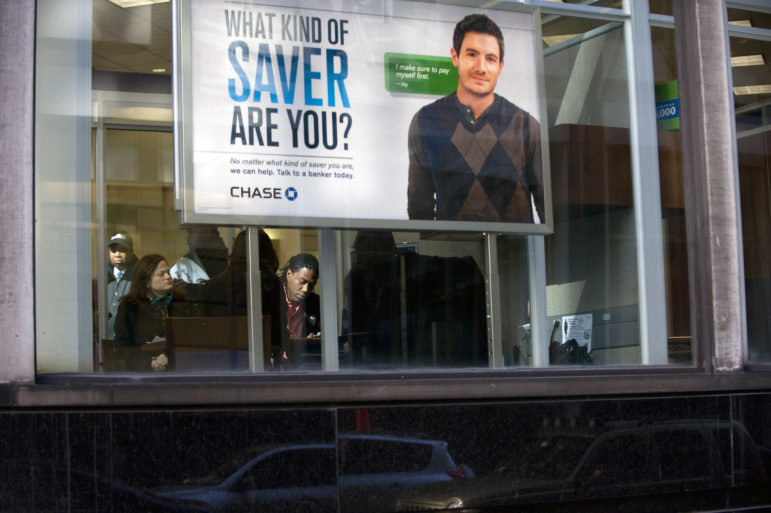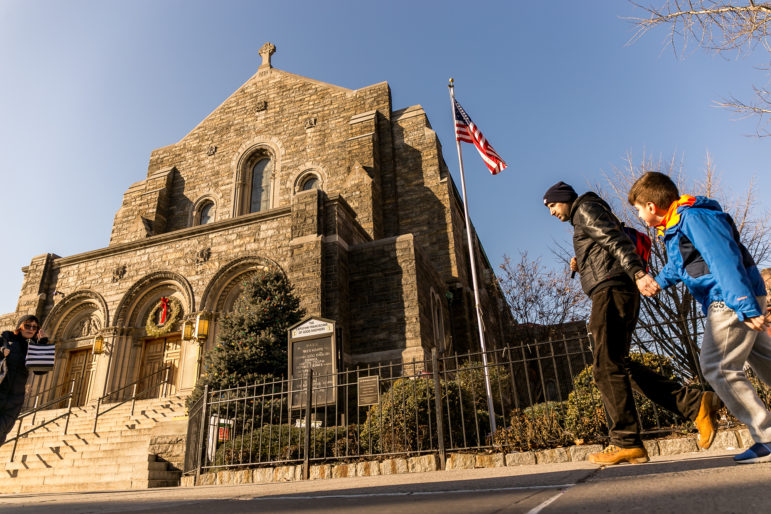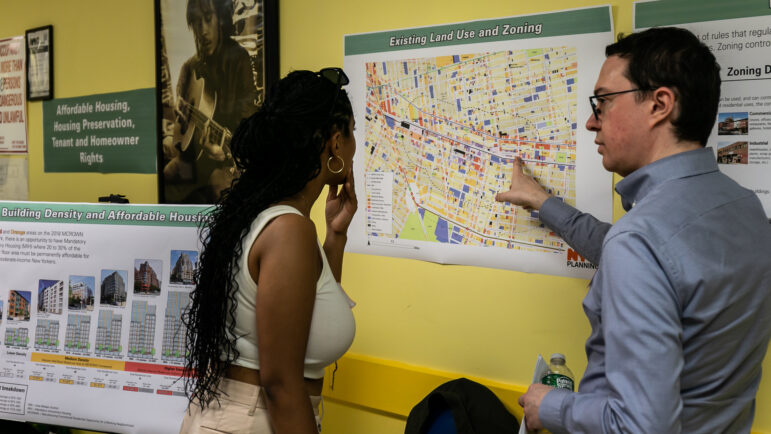A bill that would require high school students across the state to take a personal finance course has been introduced a number of times in the Albany legislature dating back to 2009, but has yet to pass. “This is something that every kid kind of needs to do, and we are kind of thrown into doing it on our own time, without any guidance,” said Anisha Singhal, a senior at Stuyvesant High School who’s pushing more schools to teach financial skills.

Adi Talwar
Anisha Singhal, a senior at Stuyvesant High School, wants more schools to offer financial literacy classes.
“Calculus before credit scores?”
That’s the question Stuyvesant High School student Anisha Shinghal asked in an oped published in her school newspaper last April, in which she argued that New York City high schools be required to offer a course dedicated to financial literacy.
It was the second column that Singhal—the opinions editor at her school paper, The Stuyvesant Spectator—had dedicated to the topic. She’d seen her classmates graduate and head off to college to face important decisions around financial aid, student loans and housing budgets, she said, many of whom were navigating those topics on the fly.
“This is something that every kid kind of needs to do, and we are kind of thrown into doing it on our own time, without any guidance,” she said.
Just six states in the U.S. required high schools to offer a stand-alone course on personal finance, as of a 2018 analysis by the Brookings Institute, which linked low financial literacy to “a host of negative credit behaviors” like paying higher interest rates or falling behind on a mortgage. There is no stand-alone requirement in New York; the state’s common core framework requires high school students to take a more general economics class that touches on just a few financial literacy standards, the Brookings report found.
“It’s not really that helpful for us to just have one unit on it, because there’s just so much to learn,” Singhal told City Limits. “It doesn’t make sense for us to just kind of gloss over everything super quickly.”
She and her peers at the school newspaper feel so strongly about the issue that they devoted an edition of the paper last spring to the topic of financial literacy. “While the ‘real world’ may seem distant to us as high school students, it won’t be long before we’re seated in front of a stack of papers wondering how we’re supposed to pay back our college loan—and why we were never taught how to,” the paper’s editors, Momoca Mairaj and Maya Nelson, wrote in a note accompanying the special issue.
Their advocacy has paid off, at least close to home: last school year, Stuyvesant High School added a personal finance class to its offerings of electives, expanding it to two sections this fall because demand for seats was so high the previous semester, some students opted to audit the course without even earning credit.
“There was one day where a student was willing to sit on the floor,” just to catch that day’s lesson, said instructor David Peng, who launched and taught the class. “You don’t have to really sell the students hard on this course,” he said.
A finance major during his undergraduate years at Carnegie Mellon University, Peng said he’s long wanted to pitch his administration on starting a personal finance class, and was inspired to make the suggestion after seeing the level of interest expressed by students in the school newspaper.
His class covers the basics of banking and credit cards, student loans, how to create and stick to a budget, saving strategies and an introduction to investing, among other topics. Singhal, who hopes to take the course this year—if she can land a spot—said she sat in on one class where students were crafting a college budget based on their actual financial aid offers from schools.
“I don’t think I’ve ever seen a project in school be that applicable to someone’s life before,” she said. She and her classmates are pushing their administration to expand the course so more students can take it, but are also hoping for a wider impact.
“We’re trying to inspire other schools to also start the class, and also inspire legislation to make this like a health class—a mandated class for students so that they can learn essential life skills,” Singhal said.
A bill that would require high school students across the state to take a personal finance course has been introduced a number of times in the Albany legislature dating back to 2009, but has yet to pass. The most recent version, sponsored last year by State Sen. Leroy Comrie, would have amended the state’s education law to mandate students complete a pass/fail course on financial literacy as a requirement for graduation.
“It was time to try to get the state to take on some responsibility to make sure that people are taught the basic building blocks to developing a budget, to have an understanding of credit and how to use money,” Comrie told City Limits, skills that taught early on “can actually change your life,” he added
The bill didn’t make it out of the education committee by the time the last legislative session ended in June, though it earned the support of the New York City Bar Association’s insurance and education law committees.

NYC Council/William Alatriste
“Instruction in financial literacy in our state’s schools is nearly nonexistent,” the committees said in a May report arguing in favor of the legislation. “Here in New York—viewed by many as the financial capital of the world—a student can graduate from high school and even obtain an Advanced Regents Diploma without ever receiving this valuable, essential instruction.”
Comrie said he plans to introduce another version of the bill when the state legislature reconvenes in January, and feels “very confident” it will pass the next time around. A spokesperson for the city’s Department of Education said the agency would review the legislation.
“Ensuring our students have financial literacy skills is a key part of helping students obtain economic security and reach their goals after graduation,” the spokesperson said.









4 thoughts on “Should New York High Schools Be Required to Teach Financial Literacy?”
Should?…Yes!
However, do ‘all’ New York City High Schools and their teachers have the infrastructure, capacity, and training: No.
Source: teachers, principals, and superintendents.
All the more reason that the WorldofMoney.org organization serves individual students via the youth financial education training institute; plus schools and organizations that serve youth, globally.
For most students, financial literacy should take precedence over trigonometry, which most people will never use. A course in financial literacy should be given in every high school everywhere. We see the results of financial illiteracy in the loans taken out by students at for-profit colleges, in the payday loan business, in applicants’ inability to calculate the future costs of mortgages, credit-card debts, car loans, etc. People are profiting from the ignorance of others, especially the others who are most at risk of being cheated. If math-literate Stuyvesant H.S. students are clamoring for these classes, think of the need among students whose math skills are lower! Enact a serious law as soon as possible and make sure that teachers are trained properly to teach it. Knowledge is also likely to reduce future bankruptcies and defaults.
For decades, New York State has offered a 2 semester curriculum titled,
“Introduction to Occupations,” consisting of 2 semester-long units: The Working Citizen (resume writing, mock job interviews) Personal Resource Management (consumer credit, personal banking) This course was a requirement for students in a vocational sequence and available as an elective for all others. With the closure of over 150 large neighborhood comprehensive and vocational schools, under the 12 year long Bloomberg administration, the 500 mini & charter schools he created that replaced them have narrow curriculums with limited course offerings, with few electives or arts offerings. Unfortunately, whenever we hear from a NYC high school student in the media, it’s almost always one from one of the elite or boutique schools, which would never offer a course with the stigma of being intended for the “non-college bound student.” They are also socially isolated from students in the remaining neighborhood high schools, so would have no idea that these classes are offered, just as they’d have no idea what else is happening in those schools.
As a teacher with more than 15 years experience and over 20 schools under my belt, I will say this:
The issue surrounding what schools should and shouldn’t teach students is often missing a critical point: even if curriculum is given to us, we cannot teach what we do not know. How many teachers understand the financial system ourselves? How many of us understand the tax code? I say with confidence that anyone who knows how financial system would never work for a school. Never. That’s why you don’t see a lot of ex-tax lawyers or accountants in K12 classrooms.
The issue isn’t WHAT should we teach, the question is WHO is going to teach it in a way that has the students coming out literate? Schools around this country are struggling to develop functional reading and math literacy and staff regular classes they’ve had for decades. Do you trust that they’ll do a better job explains the finance sector?